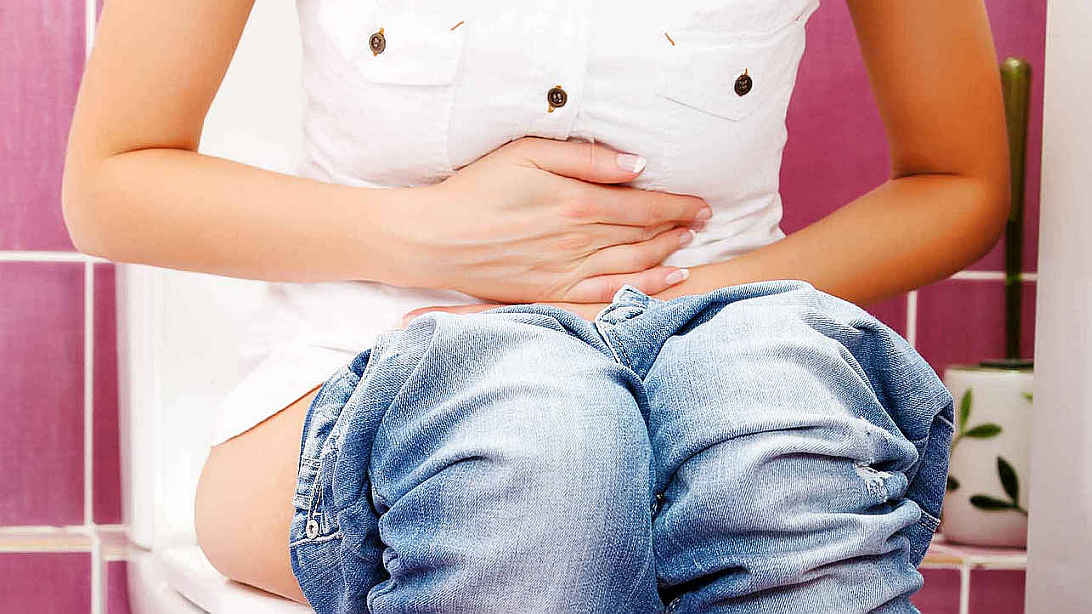What Happens To Your Body When You Stop Eating Fat?
A lot of things. Deprived from fat, your body will start using stored reserves. That is on the positive side. For a while. On the negative side, avoiding fat altogether can do serious harm to your body. Eating no fat can disrupt your hormone levels, impair the digestion or weaken the bones, impair the immune function and kidney function. In some cases of fat deficiency, organ breakdown and death result. Because even a very low-fat diet may undermine your health, it’s important to include a moderate amount of fat in your meal plan.

(Getty Images)
Vitamin absorption
Vitamins A, D, E and K are fat-soluble. Without fat in your diet, you may have problems obtaining and absorbing them. Deficiency in vitamin A may lead to night blindness and sometimes to compete blindness, while lack of vitamin K might cause poor blood clotting. Serious lack of vitamin D might lead to osteomalacia. While vitamin E deficiency is extremely rare, it can lead to muscle weakness and vision problems. Less than optimal levels of fat-soluble vitamins can also leave you with eczema, severely dry skin, and some other skin conditions.
Hormone levels
A diet devoid of fat or too low in fat can disrupt your levels of estrogen and testosterone. In women, this might undermine the bone health and alter the menstrual cycle. Estrogen supports the health of the bones by inhibiting the breakdown of bones and aiding calcium absorption, protecting them from osteoporosis. While in men, the low testosterone levels can interfere with the ability to increase muscle size and strength.

Kidneys, immune function, digestion
Essential fatty acids, or EFAs, are fats your body requires for health but can’t produce on its own, meaning you need to get them from your diet. Those are fats ALA or alpha-linolenic acid, and LA or linoleic acid. The body uses EFAs for the production of hormone-like substances that aid the control of some physical processes, including kidney and gastrointestinal function, immune function and blood pressure.
The right way | Stop Eating Fat
Now, since we talked about what happens to your body when you stop eating fat, let’s see how to do the things the right way. Whatever your diet is, 20% to 35% of your daily calories intake should be from fat. One gram of fat equals 9 calories, so on 1500 calories a day diet, you should have between 33 and 58 grams of fat – that will equal an amount between 300 and 525 calories. Be picky what you eat. Steer clear from trans fat found in margarine and a host of commercial baked goods, since trans fat is the worst for your cholesterol. Get as much as you can omega 3 fatty acids (found in fish, walnuts, flax seed). Stay low on saturated fat (meat, butter, cheese), up to 10% of your total fat intake. Dwell on mono- and polyunsaturated fat found in sources like vegetable oils, nuts, avocados, seeds.
Keeping your fat intake in those boundaries should provide your organism with enough fat for proper functioning. If you add physical activity to burn some calories and you go from 2000 to 1500 calories a day diet, you will still shed 1 to 2 pounds for 1 week.
30 Most Powerful Fat Burning Fruits
Sources:
www.livestrong.com/article/498690-what-would-happen-if-you-ate-no-fat/
www.medicaldaily.com/now-entering-starvation-mode-what-happens-your-metabolic-processes-when-you-stop-feeding-280666
www.stethnews.com/2357/what-happens-to-your-body-when-you-stop-eating-fat/
www.yahoo.com/health/this-is-what-happens-to-your-body-when-you-eat-116468176827.html





